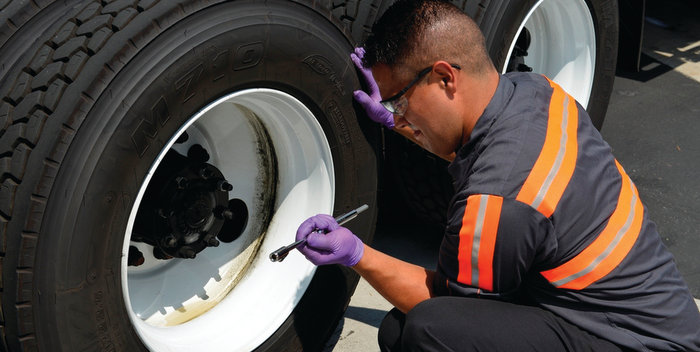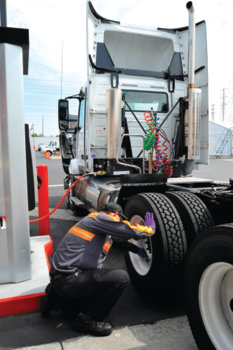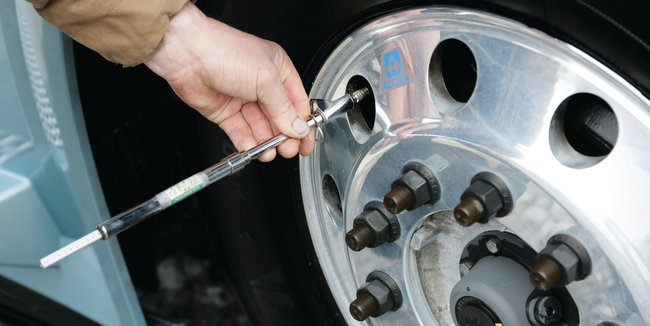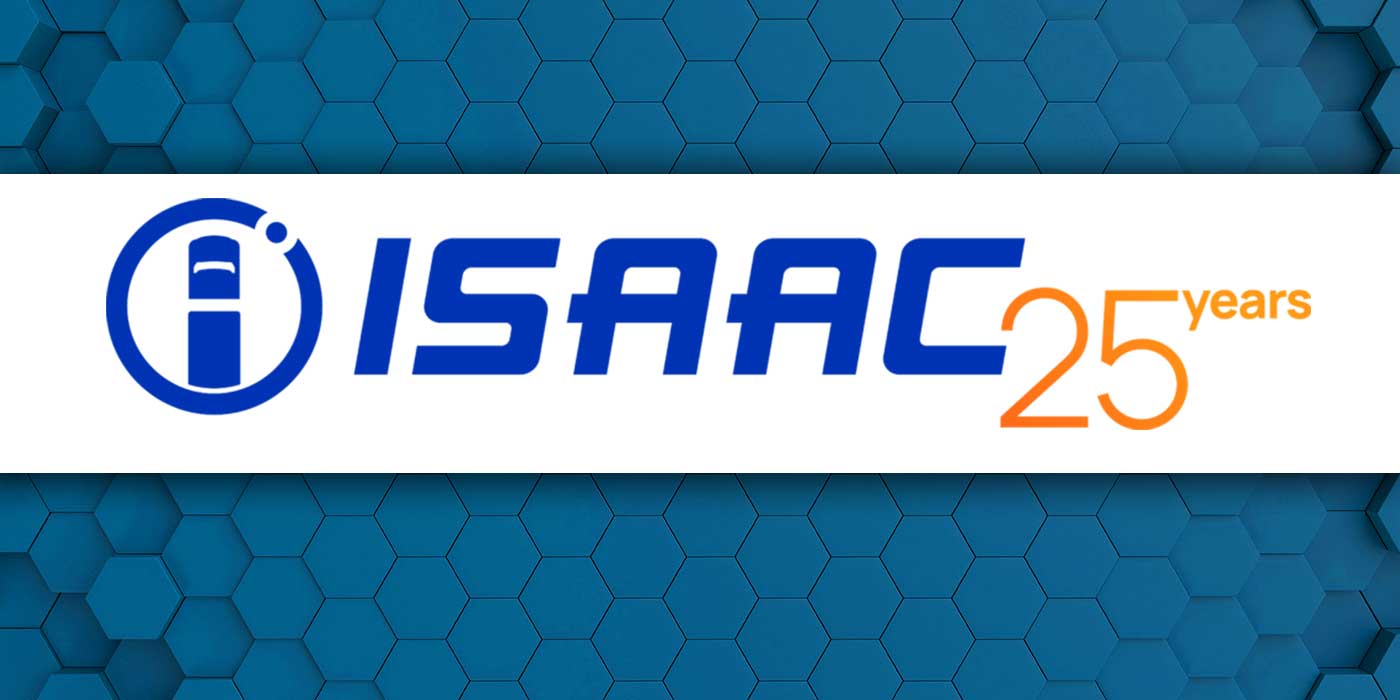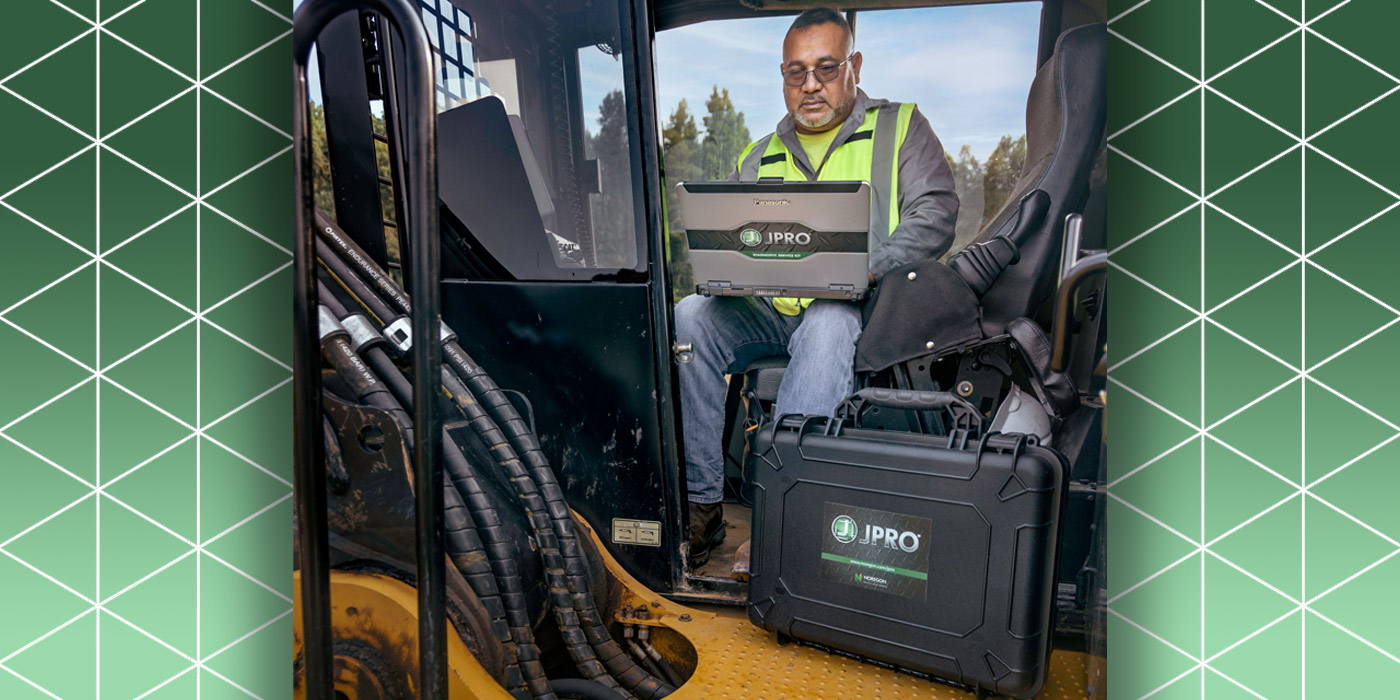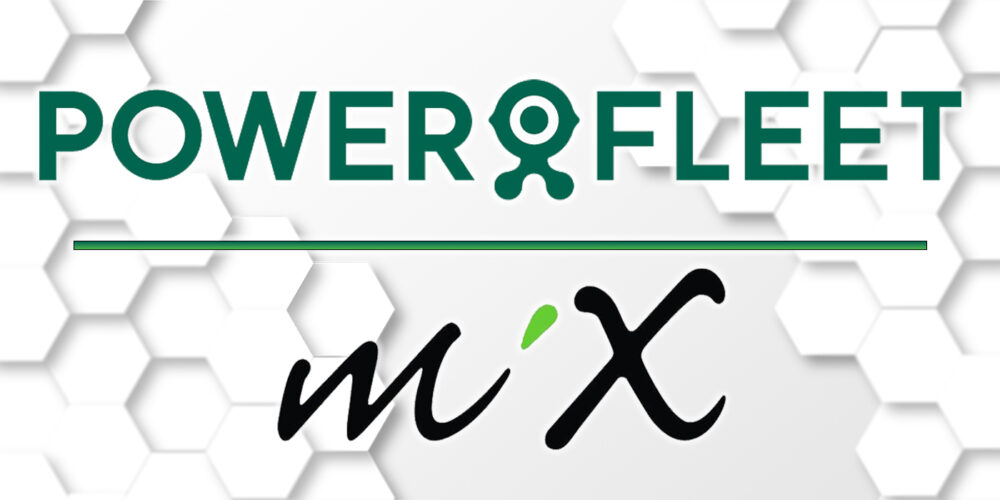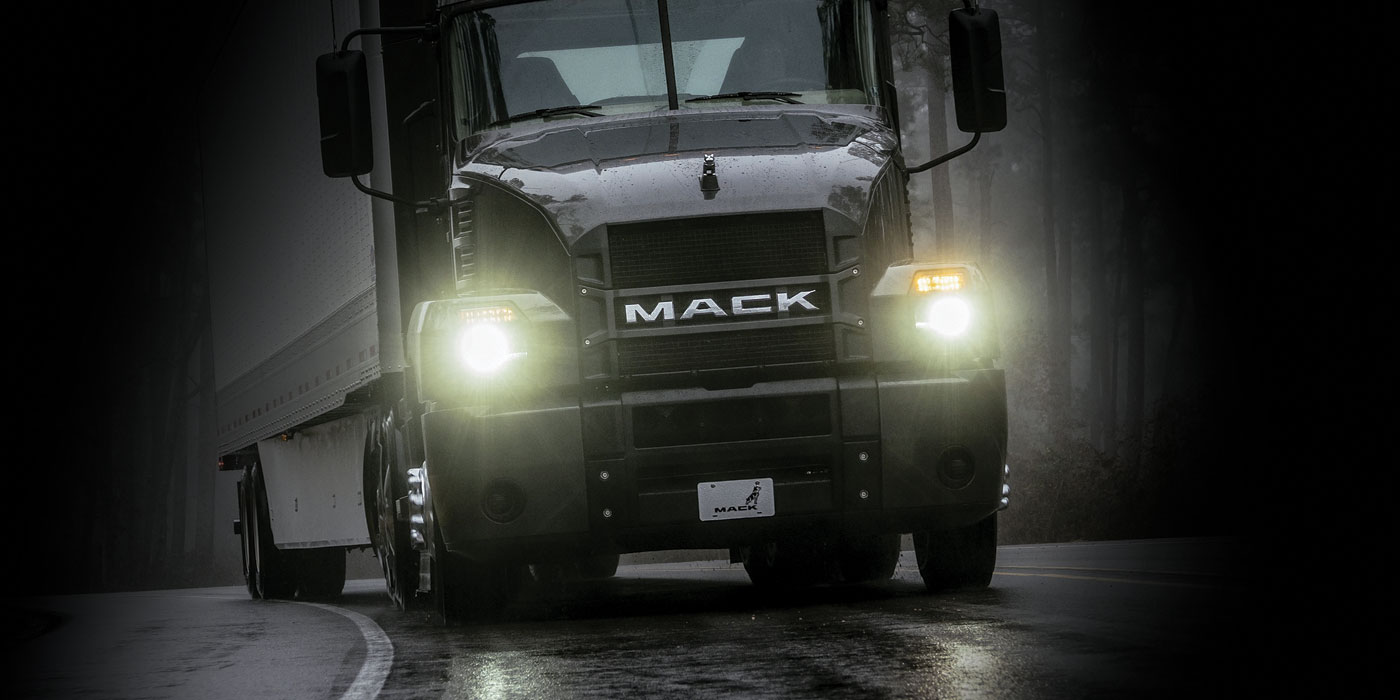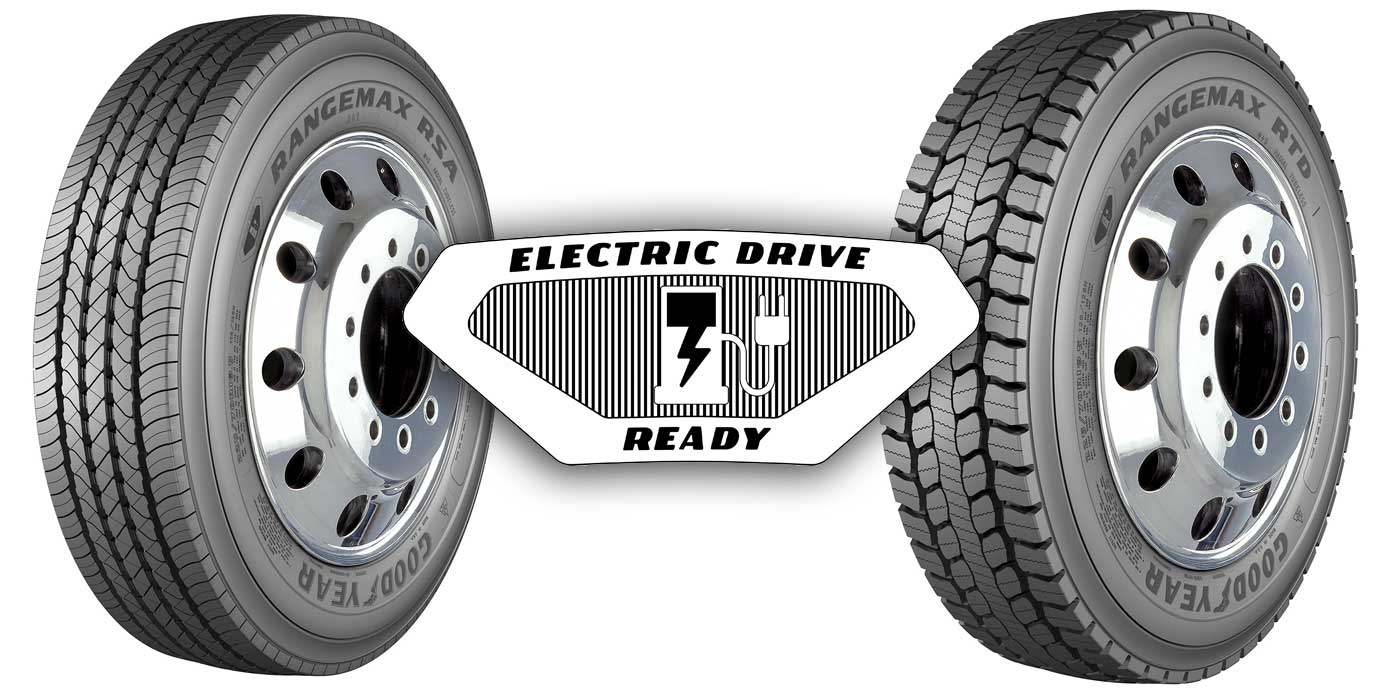With well over one million tires on the road, it’s highly appropriate that Ryder System’s vice president of supply management, Scott Perry, uses the word “dynamic” when he’s describing the company’s extensive Total Tire Management program. “With a commercial fleet nearing 200,000 vehicles, we have approximately 1.25 million tires in our system,” he says. “Needless to say, tires account for a significant portion of our operating costs.
“At the same time, our business model provides for certain guarantees about tires in our lease and rental agreements; so, it’s in our best interest to employ a comprehensive tire program,” Perry continues. “Total Tire Management focuses on everything from spec’ing the right tires for each customer application to managing new tires, casings and retreads, and of course highly detailed inspection and maintenance practices.”
At Ryder, Perry relates, tires chosen to deliver superior and reliable performance and to maximize fuel efficiency, and specs often fall under one of two broad categories. “For our commercial rental fleet, we try to spec tires for the widest range of likely applications in a specific geographical area,” he explains further. “In some instances, that means a traditional regional haul tire design and in others where there is more mixed use such as in on/off-road operations, we may change to a different tread package.
“For our primary business offering commercial vehicle leases, customer needs drive tire choices,” Perry continues. “When we work with customers to build vehicles from the ground up, we develop cab, engine and drivetrain specs to support their business application. Determining what tire makes the most sense is part of that conversation. In 2013, we added 20,000 new vehicles to our fleet, mostly two at a time, and every case we viewed as unique.”
Single source
“Our tire program is one of our only single source supplier relationships,” Perry states. “In North America we buy only new Bridgestone original tires and Bandag retreads. We have a very strong partnership because they are fully committed to Ryder’s Total Tire Management program goals and methodology.”
Ryder’s relationship with Bridgestone and Bandag also includes evaluating tires and retreads. Currently there are about 4,000 test tires in the fleet where new compounds and tread designs are evaluated in different terrain and applications.
“Our management information systems can tell us where every tire has been and the vehicle it is on, so we are an effective test bed for manufacturers,” Perry says. “At the same time, by evaluating products we’re seeing new offerings three years ahead of the market so we can stay ahead of the curve.”
Ryder’s Total Tire Management program also involves a proactive and comprehensive approach to managing casings and retreads. Within the program’s structure are about 90 tire banks across the U.S. and Canada, including satellite storage locations and a narrowly defined group of Bandag dealers.
Standards and guidelines
“The dealers in our network are dedicated to the standards and guidelines we’ve established for casings and retreads,” Perry says. “We’re very aggressive about working with them to have visibility into the quality and number of casings we have at those facilities.”
On average there are about 30,000 retreads in the Ryder system. Casings are generated only from new tires on fleet vehicles and retreaded twice in most cases, once for use on regional delivery vehicle drive axles and a second time for trailers. Each casing is graded to ensure it meets the fleet’s standards and can be used on a specific vehicle based on customer requirements.
Bridgestone and Bandag dealers also support Ryder as an extension of its service network when a tire related issue arises and when road calls are needed. Standard tire maintenance programs at Ryder’s 700 full service facilities and at vendor locations follow practices that are part of the Total Tire Management program.
All Ryder service locations record detailed tire information, checking pressures at fuel islands and at all PM intervals to maintain inflation standards.
“PSI is our first line of defense,” Perry states. “Any tire that is 10 PSI below our standard is removed for inspection. We also measure tread depths to compare mileage per 32nd and check axle alignment, especially on trailers, to promote long life, fuel efficiency and safety.”
Positive results
Ryder has also been spec’ing the Meritor Tire Inflation System by P.S.I. on all new trailers for the past six years. “Being able to ensure proper inflation on trailer tires is sometimes easier said than done,” Perry relates. “Trailer are nomadic and are not always attached to a tractor so they can generate breakdown events if tires aren’t properly inflated. This technology has yielded positive results in that regard. We’re also in the early stages of testing automatic tire inflation systems on power units, including on steer axle positions.”
“If we don’t manage tires from cradle to grave appropriately and consistently it leads to downtime and higher costs,” Perry continues. “With effective practices and accurate data we can balance customer needs with performance and cost comparisons and make effective decisions about new tires and retreads that improve lifecycles.”
Perry goes on to say that when it comes to managing tire assets Ryder takes a long view while also focusing on current needs. “Our system is simultaneously mature and flexible to ensure a high degree of uptime at the lowest possible operating cost,” he states. “Ryder’s Total Tire Management program has been evolving for decades, but it’s as dynamic as the tires we have on the road.”
Managing tires
For fleet operations, management software can make every aspect of maintaining vehicles, systems and components for maximum efficiency a more effective process. Fleet maintenance solutions that integrate management of preventive maintenance, parts, labor, warranty, fuel and tires provide access to real-time information for making more informed decisions.
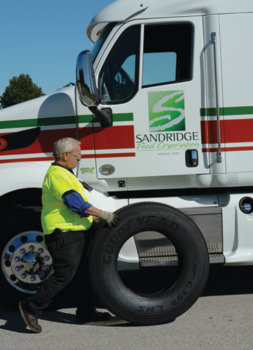
Tire management is a key part of all leading maintenance management solutions on the market today. These modules help control and monitor tire inventories, track tread depth and wear, record inflation pressures and manage overall tire utilization.
Major tire manufacturers are also making available a variety of programs for fleets to help manage tires:
Bridgestone’s National Fleet for Bridgestone and Firestone new tires and Bandag retreads allows users to manage tire activity, including tracking usage online and reviewing purchase reports. There are no start up costs or annual fees for the program.
Continental Tire the Americas offers the free, membership-based ContiFleet program that includes online access to tire and repair information, including monthly reports that track each breakdown.
Double Coin makes available to fleets a set of spreadsheets for tracking performance of steer, drive and trailer tires by mileage and costs, as well as for analyzing tire choices by brand and tread design.
The Goodyear Tire & Rubber Co., through its Goodyear-FleetHQ program, offers Tire Trac, an online program that tracks real-time tire performance via fleet surveys, enabling users to compare cost-per-mile and monitor other metrics. Through Goodyear GTRACS, fleets can track each casing through the retread process.
The recently launched Michelin Truck Care program from Michelin Americas Truck Tires uses an integrated cloud-based maintenance system so all procedures and services are audited to ensure standardized quality. Powered by TMW Systems, Truck Care integrated systems can manage a fleet’s data or integrate with in-house maintenance management software, and fleets can access information on repairs and maintenance records.

